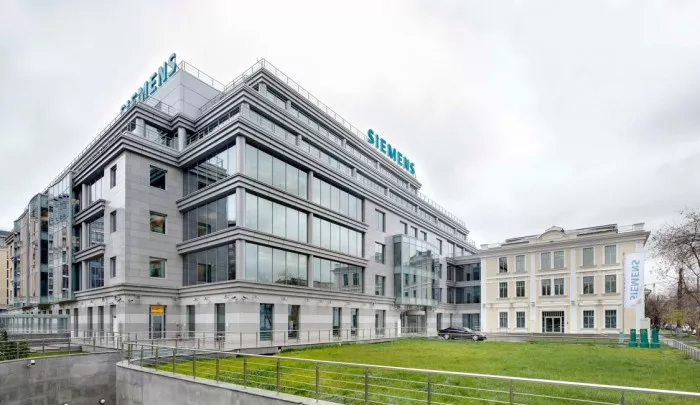German industrial technology giant Siemens announced its withdrawal from the Russian market on Thursday. Siemens said the sanctions against Russia had caused the company to lose 600 million euros in business in the past quarter and would lead to more cost increases in the future. Siemens is also the latest European multinational enterprise to announce its withdrawal from Russia. Previously, companies including sports brand Adidas and carmaker Renault have announced their withdrawal from Russia.

Roland Busch, CEO of Siemens, called the conflict between Russia and Ukraine a "historical turning point" at the financial report press conference. "Under such circumstances, the financial data have to retreat to the second line. Like many other companies, we feel the impact of this move on the business." He said.
Siemens announced the news when it announced its financial results on May 12. The company's sales in the past quarter were 17.04 billion euros, a year-on-year increase of 16%, and its net profit halved to 1.21 billion euros. The sanctions against Russia resulted in Siemens' losses of about 600 million euros, mainly from transportation businesses such as train manufacturing.
Boleren said that the company's withdrawal from Russia is expected to have a further impact on its future business. "From today's point of view, although we cannot determine the exact time range of these impacts, we expect the potential impact risk of net income to be hundreds of millions of euros." Bole Ren said.
Siemens shares fell more than 7% after opening early in the day. The company's share price has fallen by more than 10% in the past month.
Siemens has been operating in Russia for more than 170 years. Since 1851, Siemens has provided equipment for the telegraph line between Moscow and St. Petersburg.
At present, Siemens has 3000 employees in Russia, but the contribution of Russian business to Siemens' annual revenue is only about 1%. Most of the current business is related to the maintenance and service of high-speed trains.
Siemens expects that the annual revenue will still increase by 6% to 8%, and the growth of factory automation and digital building business is expected to make up for the downturn of transportation business.
"This is big news for European companies, indicating that decoupling is still going on." "It is clear that the conflict between Russia and Ukraine will have a more long-term and serious impact on the global economy," Dr. Stefan sack, former vice president of the European Chamber of Commerce, told China business news
The conflict between Russia and Ukraine has led to the rise of supply chain costs of many German industrial enterprises. Last week, the financial report of German chemical manufacturer keschuang showed that the volatile economic environment may lead to the energy cost in 2022 exceeding previous estimates. It is expected that the energy cost this year may more than double to 1.7 billion to 2 billion euros.
German chemical giant BASF also said last month that it would gradually reduce business activities in the Russian market and suspend new business. Russia's profit fell sharply to 1.2 billion euros in the first quarter of this year.
AkzoNobel, a Dutch coating company, said last month that it had suspended its aviation coating business and new investment and business activities in Russia, and may stop its remaining business in Russia in the next few months.